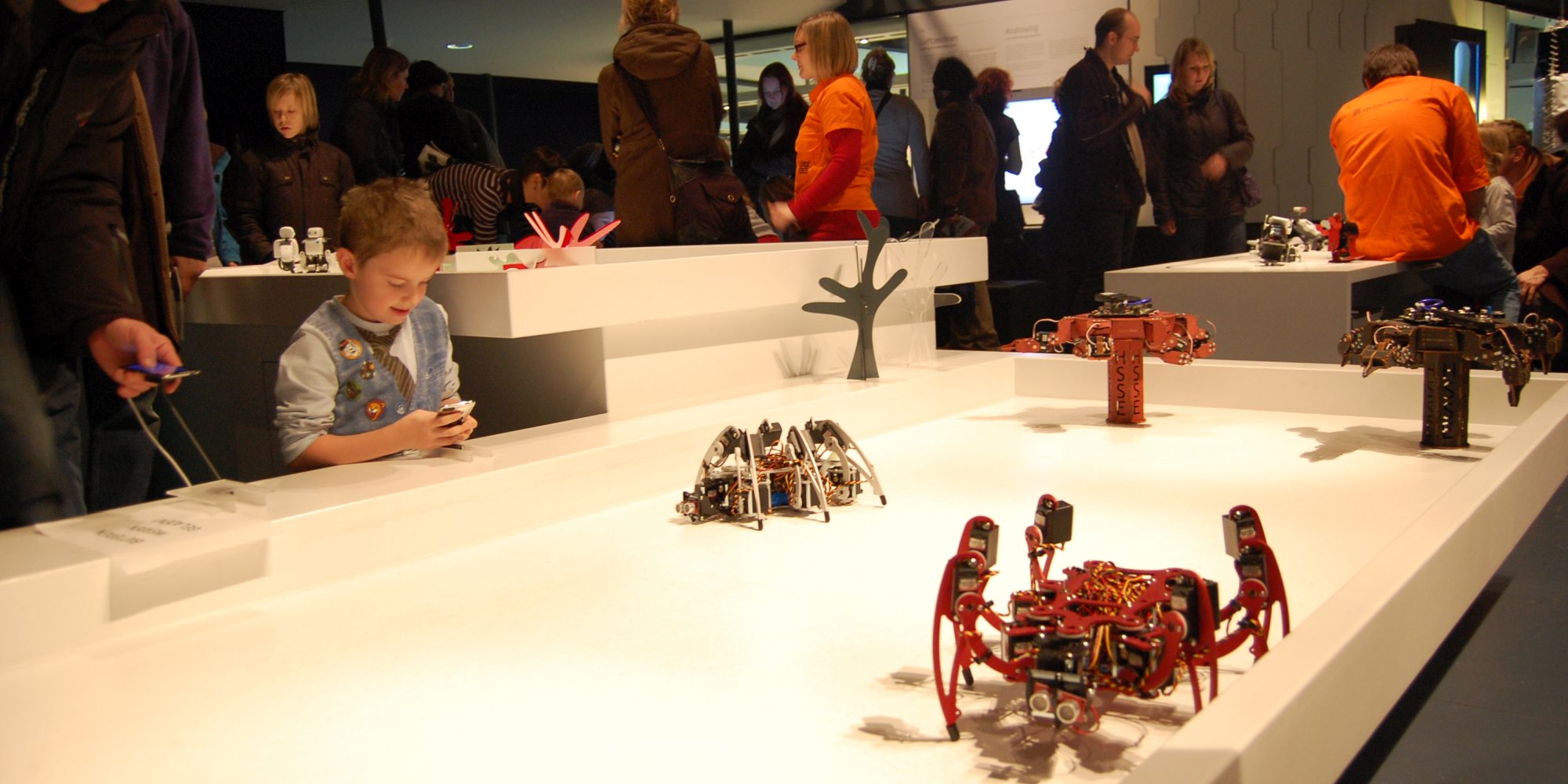2009
RoboLab

The Ars Electronica Center’s RoboLab offered close-up looks at the multifarious technical and cultural developments that determined the route into this future that humans have come to share with their machines. Exemplary contributions from the spheres of art, design and research demonstrate how robots and humans already live together and interact in today’s world. Exciting facts hint at chances and risks of our common future.